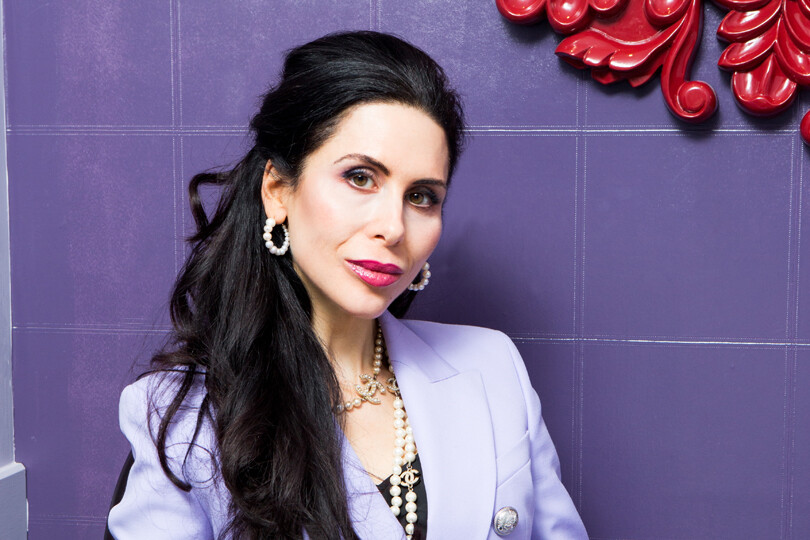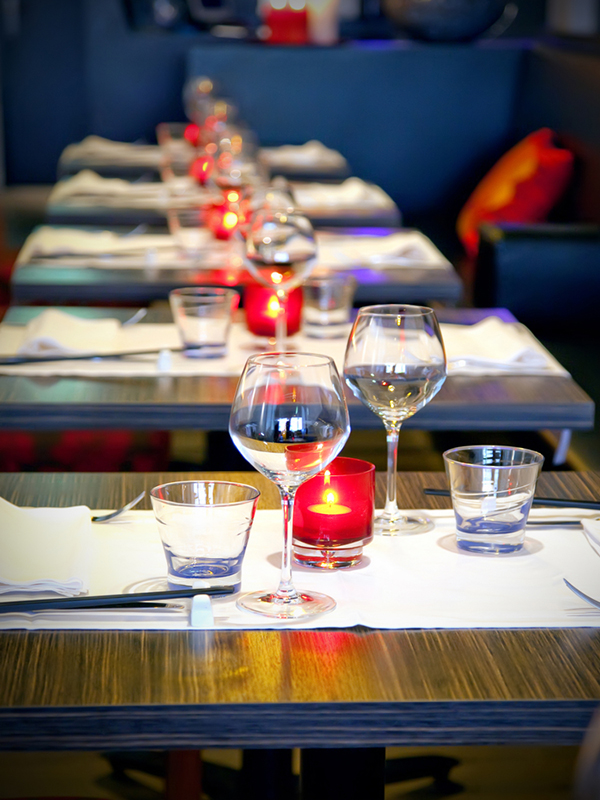Dr Jennifer Pearlman originally thought she wanted to work in cardiology, but after seeing how women are often treated like mini men in the medical field, with our unique health concerns and needs brushed aside, she made a pivot to women’s health. Over the past two decades, she has built a practice focused on women’s health and cosmetic medicine, helping women age well through integrative medicine, hormonal health, a lifestyle-based approach to wellness, and a wide range of cosmetic services.
Here, she walks us through her career path and offers advice for aspiring doctors, breaks down areas of women’s health and sexuality that are all too often seen as taboo, and shares insight on how Covid-19 has affected women’s health.
To start, can you briefly introduce yourself to our readers?
As a medical doctor I have focused my career over the past two decades on women’s health and cosmetic medicine. My career path did not follow a straight line but over many years of training and experience, I have become an internationally recognized expert in helping women age well through integrative medicine, hormonal health, a lifestyle-based approach, and a wide range of cosmetic services.
As a female entrepreneur inching into her mid 40s with a husband and two young children, I share the same challenges facing many women today. Facing more challenges and responsibilities than ever before, women truly are being pulled in many directions.
Long ago, I decided that balance was an unrealistic goal and the word itself created a pressure for women. I reach instead for “flow,” a state which allowed many passions and priorities; for me that means providing unparalleled care for patients, growing a world class business, and my most important role as mom to my two boys Charlie and James.
Briefly walk us through your career path. How did you get to where you are today?
I began my medical training believing that I would be a cardiologist. My father’s near fatal heart attack was a strong motivator for me at a young age to pursue a career in medicine and focus on the heart. But quickly I realized that there was a massive gap not only in the field of cardiology but in all areas of medicine when it comes to addressing women. Women too often were treated as mini men and systematically excluded for clinical trials on new therapies. As a result, diagnoses were (and still are) more often missed and treatments were less likely to work in women. In my early years of medicine, I began to study the role that hormones play in contributing to these differences and also as a therapy. My early work in women’s health and hormones lead to several publications and stoked my desire to better meet the needs of women through my career path.
In my early years of practice (17 years ago) a landmark trial was published that showed the commonly prescribed form of hormone therapy (known as Prempro) was linked with increased risks of breast cancer and stroke. To dig deeper into the science of hormones and be able to expertly provide integrative options to women who were now increasingly seeking alternatives, I began a fellowship and am now a fellow in Functional Medicine. In parallel to this journey, I became immersed in the conventional side of Menopause care and Hormone Therapy and am one of a few Canadian physicians certified as a Menopause Practitioner by NAMS, the North American Menopause Society. For over a decade, I worked and helped build the menopause clinic at Mount Sinai Hospital in Toronto, the largest of its kind in Canada. Nearly 15 years ago, I began to establish a new model of medicine to provide truly personalized, preventative and wholistic care. PearlMD was established to help women age well through the inside out with a range of integrative health services and cosmetic medical care.
You also have a product line. What is a must-have from your line that you would recommend?
I would recommend two must haves:
– Sunblock: our PROTECT is a medical grade UV A blocker (the rays that age you and cause cancer) as well as UV B blocker (the rays that tan/burn you).
– Retinol: our REFINE serum is a medical grade retinol powered for full effect without skin irritation. It is formulated in three potencies and should be used on alternate days.
Our skin care line is then customized, and we offer four main programs (set up as kits):
– Ageless: for aging skin targeting the fine lines and laxity in the face, eye, and delicate skin of the neck and décolletage.
– Bright Skin: for pigmented skin (brown spots)
– Clear Skin: for acne prone skin
– Sensitive Skin: for red prone and sensitive, dry skin
What challenges or hurdles did you face as you grew your practice, and how did you overcome them?
Long ago, I realized it was all about people. As a professional services company and a medical doctor, there is a limit to scalability as I can only be in one place at a time. Spending most of my time one on one with patients leaves little time to grow and work ON the business. These tasks tend to take up my late-night hours (or early morning). Cultivating a team to engage with me in growing the business has been the most challenging but also most rewarding part.
What are some areas of women’s health that you think are still hush-hush or taboo that you wish we spoke more about?
The tabooest topic is women’s sexuality. There is not enough discussion or focus on ways to help women remain or improve their sexuality, their libido, and their sexual function. Unlike men, women remain able to engage in intercourse but often lose their desire to do so. Men lose their ability due to erectile dysfunction. Vaginal dryness and pain are two of the most common symptoms related to menopause and low estrogen. Yet, too many women are not being asked about vaginal or sexual health concerns and treatment options are not being adequately presented to them. This is important as women who remain sexually active in their later years are shown to consider their quality of live higher. After all, it is about living longer better.
Another important topic too often overlooked and not given adequate attention in biomedical research is the unique risks women face in maintaining their brain health and vitality. Cognitive decline, memory loss and dementia are more common in women and the longer life expectancy women enjoy does not even come close to accounting for this difference. Mood disturbances are more common in women and women are far more likely to experience health and emotional consequences due to stress. Stress for women is a common denominator of our aging.
What are some health issues that millennial women commonly see you about that you can shed some light on?
Some of these health issues include irregular periods, premenstrual symptoms (PMS) including mood changes, nutritional support and gut health concerns, and hormonal acne and hair loss.
Young women are increasingly seeking cosmetic enhancement even if they are not yet showing signs of aging. Botox brow lift, lip enhancement with fillers, or smoothing out of under eye hollows (known as the tear trough) are common treatments. Laser skin resurfacing, light therapy or medical peels are popular treatments amongst millennials to erase sunspots, shrink pores, and treat acne.
It is amazing how often there is a link with internal factors such as hormonal imbalances or inflammation with manifestations in the skin. The skin after all is the largest organ.
Have you noticed ways in which the Covid-19 pandemic has specifically affected women’s health?
There are three top concerns that come to mind:
Stress and emotional wellbeing: These are difficult times. Women are bearing the brunt of COVID-19 stressors, including economic and parenting challenges. Stress can have dramatic effects in women: muscle tension, clenching, sleep and mood changes, brain fog, and increasing the risk of diseases like cancer. While stress ages women, a mind-body approach and stress-reducing techniques can greatly improve our vitality.
Skin: The new normal of mask wearing brings new challenges to our skin. From sensitivity (redness) to acne break outs and clogged pores (mascne), COVID-19 has increased the demand for skin fixes especially ones that have at home component.
Body: The “quarantine 15” refers to the pounds of COVID-related weight gain many are noting on their waistline. Stress and changes in lifestyle especially with many weeks at home have contributed to the added pounds.
What are some annoying or silly misconceptions in women’s health that you would like to correct?
Women are not mini men. We need and deserve to have our unique risks and susceptibilities better understand so that effective treatments and preventative health strategies can be designed. While women are born with advantages when it comes to aging, we are much more vulnerable to lifestyle risks and the impact of stress. It behooves us all to focus on the factors within our reach to be proactive about our health and aging.
How do you personally make sure you stay healthy? Do you have any top wellness tips?
My deep connections to my family keep me very balanced emotionally. Spending time in nature is my medicine. Long runs in the country surrounded by trees and wildlife allows me to free my mind and reach my most creative zone. Nutritionally, I have followed a whole food diet rooted in greens, healthy fats, and lean protein, which I supplement with targeted nutrients. I include retinol in my skincare routine and rotate through my skin line depending on the season and my goals: erasing and preventing pigment and sunspots through summer and treating redness and dry sensitive skin through winter.
What do you love about your job?
Helping people look and feel their best. Having my vision and values and the essence of my brand reflected back to me from my staff and patients. The ongoing support of word-of-mouth referrals from happy patients is the best testament to the service we provide.
What is a regular day-in-the-life like for you?
My day is planned the night before with a detailed list of the activities and meals for my household. Early morning, I wake up. Often my boys are off to their sports (they are both competitive athletes; my elder plays hockey and golf and my younger figure skating).
Workdays are full and long. There’s a mix of cosmetic and concierge health patients and now more virtual medicine. There are team meetings, conversations and business planning interspersed throughout the day. Many days are long. Family dinners are late. Evening bike rides through the nearby greenbelt trail are a treat. After the kids are sleeping, I settle into my home office to review and respond to emails, attend to business needs, manage the team, reflect on growth opportunities and create content for social media, newsletters etc.
I do not watch TV and have navigated the pandemic pivot without even one Netflix show or zoom workout. I do not like to sit (I never have). I work all day on my feet and other than sitting with my kids to eat or sitting at my desk to work, I am almost always on my feet at home, engaged with the many tasks involved in running a busy household. I am blessed with a close-knit and very involved family that also plays an important role in helping to manage the children’s schedule.
Physical activity is very important to me. I try to exercise daily, now mostly at a small home gym or with a long outdoor run. While running and aerobic exercise is my preference (my body is made to move), I have committed to making time to work on my core (weakened through pregnancies) and my bone and muscle health through weightlifting.
What are your tips for aspiring doctors?
Envision your end game. Get in tune with your deep passions. The study of medicine may be very different from the practice within that specific field. Seek out mentors—and for women, ensure you have a female role model.
Where do you hope to see yourself in five years?
Continuing to grow the business with a larger geographic footprint and reach and continuing to be first to market a range of revolutionary health and beauty treatments and technologies.










